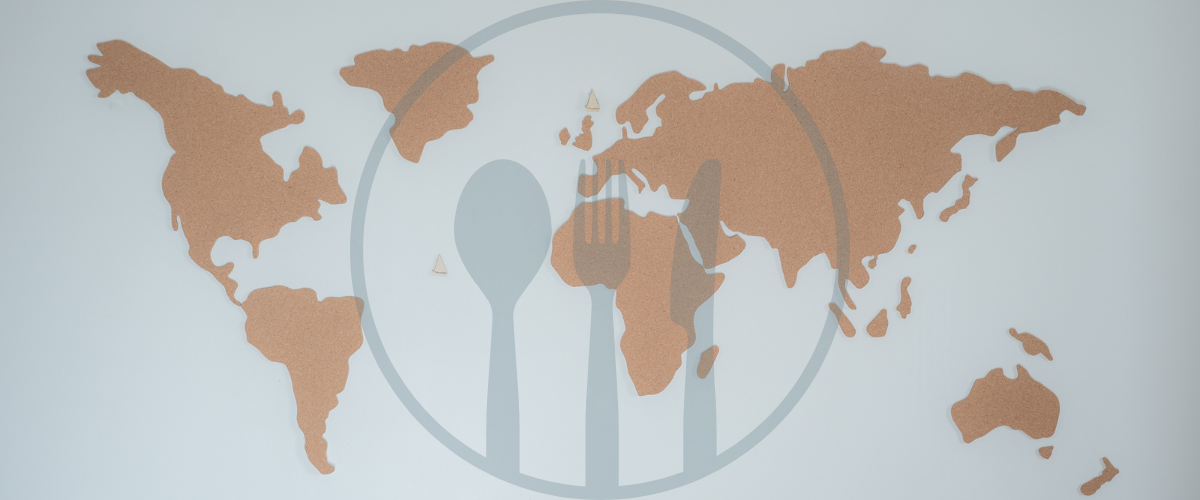Carolyn Steel or how food can save the world

If at the IV Summit of Zero Hunger Regions we were able to count on the intervention/contribution of the American Paul Roberts, author of The Coming Hunger, at the V Summit in Barcelona we will have the English Carolyn Steel, author of Hungry Cities (2020) and Sitopia (2023). This second book, published last year, is subtitled “How food can save the world”, something we will want her to explain at the summit.
The book presents a situation in which we know that, in environmental terms, we are living beyond our means and, although we are perfectly aware of this, we do not react or do not do so with the forcefulness that we should. The book looks for ways out of this situation and points out that food may hold the key.
Carolyn Steel obviously recognizes the environmental consequences of climate change and overpopulation. However, she points out that the loss of species (animal and plant) may be an even greater threat than climate change. He states that we are facing a sixth species extinction and speaks of biological annihilation. This represents a massive erosion of biodiversity and the destruction of ecosystems, which are essential for civilization. The author ironizes the fact that there is sensitivity to the possible extinction of tigers and pandas, but there should also be sensitivity to the disappearance of insects and other invertebrates, since they are ultimately essential for human life.
The book recognizes, as does the FAO, that the current agricultural system, with its intensive use of chemical fertilizers and pesticides, has contributed to these environmental problems by causing massive deforestation, water shortages, soil depletion and high levels of greenhouse gas emissions. Our agricultural system, with its way of producing food, transporting it and, above all, consuming it, can be lethal for the human future on the planet.
In this context it seems, however, that there is a need to increase food production. In 2017 the FAO in its report “The Future of Food and Agriculture” stated that by 2030 food production should increase by 50%. The same FAO report stated that the current agricultural system cannot guarantee sustainable food production. At this point, the author asks: what do we do now?
For Carolyn Steel, the key is to value food. She rejects the culture in which food magically appears on the plate without people being aware of its biological value. She argues that food is life, a life that humans kill in order to live. From this point on, everything related to food takes on another dimension.
The author rejects industrialization processes that end up producing “junk food”. She states that the fact that millions of people do not eat well, healthily or sustainably is a huge problem. “To say that junk food is necessary for the poor to eat,” she says, ”is insane”. He therefore addresses hunger as well as overweight and obesity. She points out the paradox, for example, that 47 million Americans depend on public food stamps and end up eating only junk food because they live in areas that are “food deserts”, urban areas where it is impossible to buy fresh food.
Carolyn Steel defends the right to eat well, now and in the future. She asserts that food roots us in the world, both socially and physically. For her, in the future, living in a democracy must mean regaining control of food. In her opinion, valuing food also means becoming aware that it is produced within our ecological limits. Thus, agricultural practices must imitate biological cycles. The book thus explores all agricultural experiments not based on the use of chemical fertilizers: direct seeding, green manure, fallow land, the facilitation of synergies similar to those in nature by encouraging the juxtaposition of habitats....
The most obvious consequence of valuing food, says the author, would be a rural renaissance. Today, on all continents, villages around the world are emptying and the countryside, far from the rural idyll, is increasingly the dumping ground for urban externalities. But, this change must come about because, faced with the dynamics of industrial agriculture, the new agriculture needs more people working to produce food, not less. With more people living in the countryside and more money flowing there, services such as post offices, schools, hospitals, stores, transportation, as well as better distribution networks, markets, food centers... would again proliferate.
The author rejects industrialization processes that end up producing "junk food". She notes that the fact that millions of people do not eat well, healthily, or sustainably is a huge problem. “To say that junk food is necessary for the poor to be able to eat,” she says, ”is insane.” It deals with hunger as well as overweight and obesity. She points out the paradox, for example, that 47 million Americans depend on government food stamps and end up eating only junk food because they live in "food deserts," urban areas where it is impossible to buy fresh food. Carolyn Steel defends the right to good food, now and in the future. She asserts that food roots us in the world, both socially and physically. For her, living in a democracy in the future must mean regaining control over food. In her view, valuing food also means being aware that it is produced within our ecological limits. Agricultural practices must therefore imitate biological cycles. The book therefore explores all agricultural experiments that are not based on the use of chemical fertilizers: direct seeding, green manure, fallow land, facilitating synergies similar to those found in nature by encouraging the juxtaposition of habitats. ....
The most obvious consequence of valuing food, says the author, would be a rural renaissance. Today, on every continent, the world's villages are emptying and the countryside, far from being a rural idyll, is increasingly becoming the dumping ground for urban externalities. But this change must come, because in the face of the dynamics of industrial agriculture, the new agriculture needs more people working to produce food, not less. With more people living in the countryside and more money flowing there, services such as post offices, schools, hospitals, shops, transportation, as well as better distribution networks, markets, food centers... would again proliferate.
The author is in favor of a “guerrilla” localism and an attitude of “local resistance”. She states: “Take care of the countryside and the countryside will take care of you”. But, beyond this defense of the rural environment, “Sitopia” deals extensively with the role that cities should have in relation to food. Thus, it speaks of the fact that in the cities there can be urban gardens, “vertical farms”, hydroponic farming, urban farms, garden cities... with the urban suburbs having- in the peripheries- the agricultural fields and a close rural environment that provides local products.
Sitopia is above all a big wake-up call for the more developed countries. Steel argues that the inhabitants of the North have a moral obligation to reduce their environmental footprint. But this is not only a moral warning. The author recommends that they should regain their sovereignty in the provision of food, because, she warns, the usual food-suppliers may be too busy with their own food security “to feed us”.
More info here: V Summit - Oru Fogar (regionsunies-fogar.org)










































































